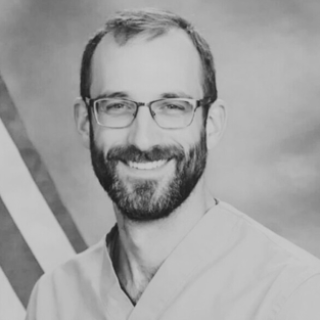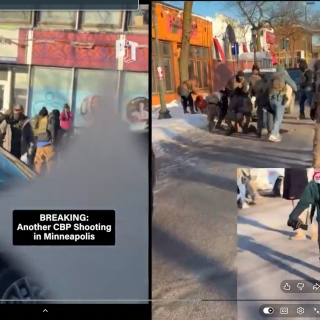Ohio’s environment and the planet would be more peaceful and green if Dennis Kucinich was in charge. That was his message when the former Cleveland mayor, former U.S. Congressperson and former presidential candidate spoke Saturday, April 1 at Columbus’ 5th Annual Move to Amend statewide conference. Kucinich’s keynote was entitled “Ending Corporate Personhood and Money as Speech.” He touched on several environmental and social justice issues that could be changed if the Move to Amend movement was successful in passing a Constitutional amendment to reverse several U.S. Supreme Court decisions during the past century and thereby firmly establish that corporations are not people and that money is not free speech.
Kucinich held up the March issue of the Columbus Free Press as he referred to Harvey Wasserman’s article “Ohio’s Crumbling Nukes Face Judgment Day” about the attempt to have taxpayers bail out Ohio’s nuclear power plants. He described Free Press Senior Editor Wasserman as “one of the foremost citizen activists anywhere on nuclear issues.”
He denounced FirstEnergy’s proposed $4 billion bailout of the Davis Besse nuke plant in Toledo and the Perry reactor east of Cleveland. Kucinich said there was no accountability regarding how these plants are regulated and criticized the Price Anderson Act that subsidizes the nuke energy industry by putting the government on the hook in paying off major nuclear disasters. Energy expert Ned Ford estimated Ohio ratepayers have already paid $20 billion in bailouts to the state’s nukes.
Kucinich told the audience that “back in 1978 we had rallies outside of Davis Besse and Perry. We tried to stop them before they went into operation. When they did, it resulted in Ohio losing a lot of industry due to the high cost of energy. They have corrupted the politics in this state.”
At the beginning of his address, Kucinich reminded the activists of his own role in saving Cleveland’s publicly owned Municipal Light. In December 1978, then known as the “boy mayor of Cleveland,” Kucinich refused to sell “Muny Light” to its private competitor, the Cleveland Electric Illuminating Company (CEI).
The banks in Cleveland attempted to coerce him by declaring a capital strike and refusing to refinance the city’s debts. The mob put a hit out on him and Kucinich told the audience there had been three assassination attempts on his life. He lost his mayoral re-election bid to the banker’s choice George Voinovich in 1979. But in 1998, Kucinich was vindicated when the Cleveland City Council honored him for his “courage and foresight” in standing up to the banks and saving public energy. The Council estimated that the city had saved $195 million in a decade by not selling off its energy company.
The theme of Kucinich’s talk was the need to stand up to raw corporate power. His progressive populism and honesty about where the mainstream Democrats get their campaign funds put him at odds with the corporate wing of his party.
Kucinich warned the crowd about corporate giant Monsanto, the leading producer of genetically-engineered seeds, as well as the herbicide Roundup that contains glyphosate, a “probable carcinogen.” He recommended that the audience read the report by the Organic Consumers Association called “Glyphosate: Unsafe on Any Plate.” Monsanto has long been associated with controversial products like the insecticide DDT, the military chemical Agent Orange, the toxic compound PCB, and bovine growth hormone.
He said that a current trial involving Roundup revealed that Monsanto is in practice of ghost-writing scientific reports and using tactics similar to those of Big Tobacco in covering up the toxicity of its products. Kucinich claims that the money Monsanto puts into politics corrupts both science and government.
Kucinich made a plea for an environmentally sustainable food system and said that “Rather than be paralyzed by fear, we the people should reclaim democracy.”
Kucinich made the connection between the lack of sustainable environmental policies and the massive amount of money going into the military. He has been a long advocate of creating a Department of Peace that would approach foreign policy in a non-violent manner.
He stressed that we need to question the perpetual wars and unilateralism supported by both major parties. He called the United States an empire, and denounced the arms merchants and the “careerists” in the Pentagon, CIA and State Department.
He said that the military’s action in Syria constituted a “mini-coup” after President Obama and Secretary of State John Kerry had negotiated an agreement with the Syrians and the Russians on how to defeat ISIS. Kucinich also warned about a “government within a government” and suggested that “it would be nice to see the government occupy Flint and bring them clean water.”
Kucinich estimates that we’ve spent $6 trillion on the Iraq War, a military operation based on “lies and misdirection.” He said that President Donald Trump’s approach to raise the military budget by 10 percent a year, up to $800 billion, will perpetuate a “cycle of endless war.” Quoting the highly-decorated Marine General Smedley Butler, Kucinich reiterated that “war is a racket.” He said, “They’re keeping us at war for the profit. We don’t have peace because there’s money in war.”
Karen Kassler of Ohio Public Radio attended the event and posed the ten thousand dollar question directly to Kucinich: “Are you running for Governor of Ohio?” He didn’t say yes or no, but did offer “These issues will drive elections and will determine who will end up running.”




